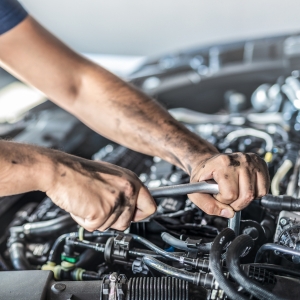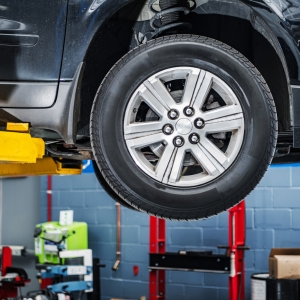Maintaining a car is essential to ensure its longevity and efficient functioning. From regular tune-ups to tire rotations, there are various tasks that car owners must perform to keep their vehicle in top shape. One crucial aspect of car maintenance that often gets overlooked is change oil in car regularly. While some may see it as an unnecessary expense, the truth is that changing oil is vital for the health of your car’s engine. Not only does it help improve performance, but it also prevents costly repairs down the line.
In this article, we will delve into the reasons why changing your car’s oil is crucial and how it can benefit your vehicle in the long run. From understanding the importance of oil in a car’s engine to the recommended frequency of oil changes, we will cover all the necessary information to help you understand why this seemingly simple task is vital. So, if you’re wondering why you need to change oil in your car, read on to learn more.
Maintains engine health and efficiency

Regular oil changes are essential for maintaining the health and efficiency of your car’s engine. Over time, the oil in your engine breaks down and becomes contaminated with dirt, debris, and engine byproducts. This can lead to increased friction and wear on vital engine components, reducing their lifespan and potentially causing costly damage. By changing the oil at regular intervals, you ensure that the engine is properly lubricated, reducing friction and heat buildup.
This not only improves the overall performance of your car but also helps to prevent engine overheating and excessive wear. Regular oil changes also allow for the removal of harmful contaminants, ensuring that the engine is running at its optimal level and reducing the risk of mechanical failure. Ultimately, maintaining engine health and efficiency through regular oil changes is a vital aspect of car maintenance, prolonging the life of your vehicle and preventing unnecessary breakdowns.
Prevents build-up of harmful contaminants
There are several important reasons why regular oil changes in your car are necessary, and one of them is the prevention of harmful contaminants build-up. Over time, your engine oil can accumulate dirt, debris, and engine byproducts that can be detrimental to its performance. These contaminants can clog oil passages, impair the lubrication process, and result in increased friction and heat generation.
By changing the oil at recommended intervals, you remove these harmful particles and ensure that your engine is free from any build-up that can compromise its efficiency and longevity. Preventing the build-up of harmful contaminants through regular oil changes is a crucial step in maintaining the health and reliability of your car’s engine.
Increases longevity of vehicle

Regularly changing the oil in your car not only helps prevent harmful contaminants build-up but also increases the longevity of your vehicle. Fresh, clean oil acts as a lubricant for the engine’s moving parts, reducing friction and minimizing wear and tear. This, in turn, helps maintain the overall performance and efficiency of your car.
By regularly replacing the oil, you ensure that the engine is properly lubricated, preventing unnecessary strain and reducing the risk of premature engine failure. Ultimately, investing in regular oil changes is a small but important step in preserving the longevity of your vehicle and ensuring its reliability for years to come.
Improves overall performance and mileage
Regularly changing the oil in your car not only helps maintain the longevity of your vehicle but also improves its overall performance and mileage. As the engine oil gets used over time, it can become contaminated with dirt, debris, and even sludge, which can hinder the engine’s efficiency. By changing the oil at regular intervals, you ensure that your engine is running on fresh, clean oil, allowing it to operate smoothly and at optimal levels. With improved lubrication, the engine experiences reduced friction, leading to less strain and wear on its components.
This results in improved performance, responsiveness, and fuel efficiency, ultimately maximizing your car’s mileage and saving you money on fuel costs. So, regular oil changes not only protect your engine but also enhance the overall performance and fuel economy of your car.
Follow manufacturer’s recommended schedule

To ensure that you are changing your car’s oil at the right time, it is essential to follow the manufacturer’s recommended schedule. Car manufacturers spend countless hours and conduct extensive research to determine the intervals at which oil changes are necessary for optimal engine health. They take into account various factors such as the type of oil used, engine design, driving conditions, and climate.
By adhering to the manufacturer’s guidelines, you can be confident that your car’s engine is receiving the proper care it needs. Ignoring or neglecting these recommendations can lead to increased engine wear, reduced fuel efficiency, and potential damage, ultimately resulting in costly repairs. So, by following the manufacturer’s recommended schedule, you can ensure that your car’s engine remains in peak condition, providing you with a reliable and efficient driving experience for years to come.
FAQs About change oil in car
What are the consequences of not changing the oil in your car regularly?
Not changing the oil in your car regularly can lead to a multitude of consequences. Over time, the oil in your car becomes contaminated with dirt, debris, and other contaminants. This can cause the oil to become less effective in lubricating the engine, leading to increased friction and wear on critical components.
Without proper lubrication, the engine can overheat and potentially seize, resulting in costly repairs. Additionally, old oil can lead to the buildup of sludge, which can clog the engine and affect its performance. Regular oil changes are essential to maintain the longevity and performance of your car’s engine.
How often should you change the oil in your car and why?
You should change the oil in your car every 3,000 to 5,000 miles or as recommended by your car manufacturer. Regular oil changes are essential to maintaining the engine’s lubrication, preventing friction, and keeping the engine clean.
Fresh oil helps to remove dirt and debris, preventing build-up that can lead to engine damage or reduced performance. Regular oil changes also extend the life of your engine, improve fuel efficiency, and ensure optimal vehicle performance.
What happens to the engine if the oil is not changed on time?
If the oil is not changed on time, it can lead to a variety of problems with the engine. Over time, the oil can become dirty and contaminated, losing its ability to properly lubricate the moving parts of the engine. This can cause increased friction and wear, leading to decreased engine performance and potentially serious damage.
Without regular oil changes, the engine may experience increased heat and stress, leading to the formation of sludge and deposits that can clog the engine and impact its overall efficiency. Ultimately, neglecting oil changes can significantly shorten the lifespan of the engine and potentially result in costly repairs or engine failure.
Conclusion
Changing the oil in your car is a crucial maintenance task that should not be overlooked. By regularly changing the oil, you are ensuring that your engine runs smoothly and efficiently, preventing costly repairs and breakdowns.
It is a simple yet essential step in prolonging the lifespan of your vehicle. So, make sure to follow your car’s recommended oil change schedule and keep your engine running like a well-oiled machine. Trust us, your car will thank you.

